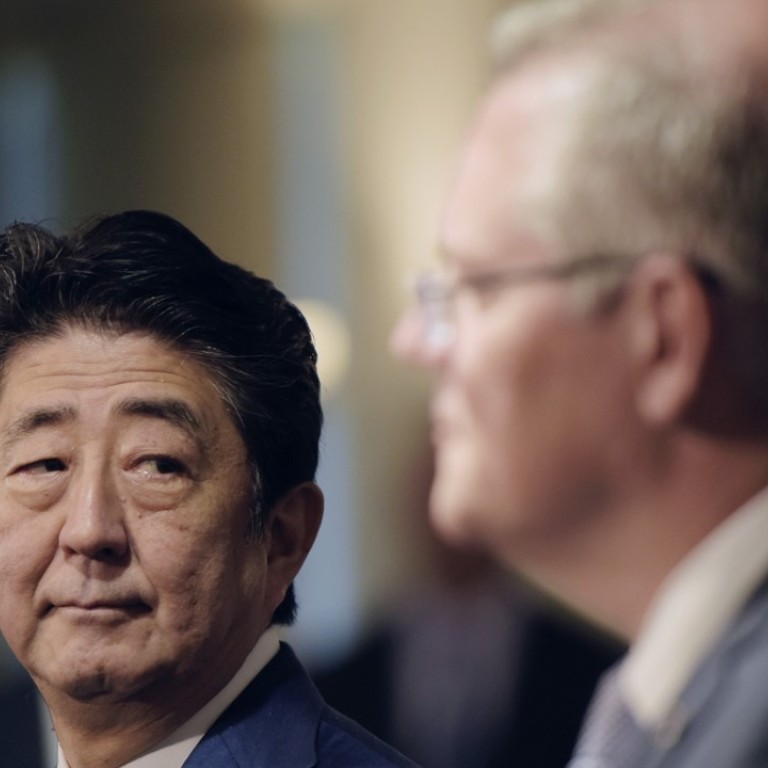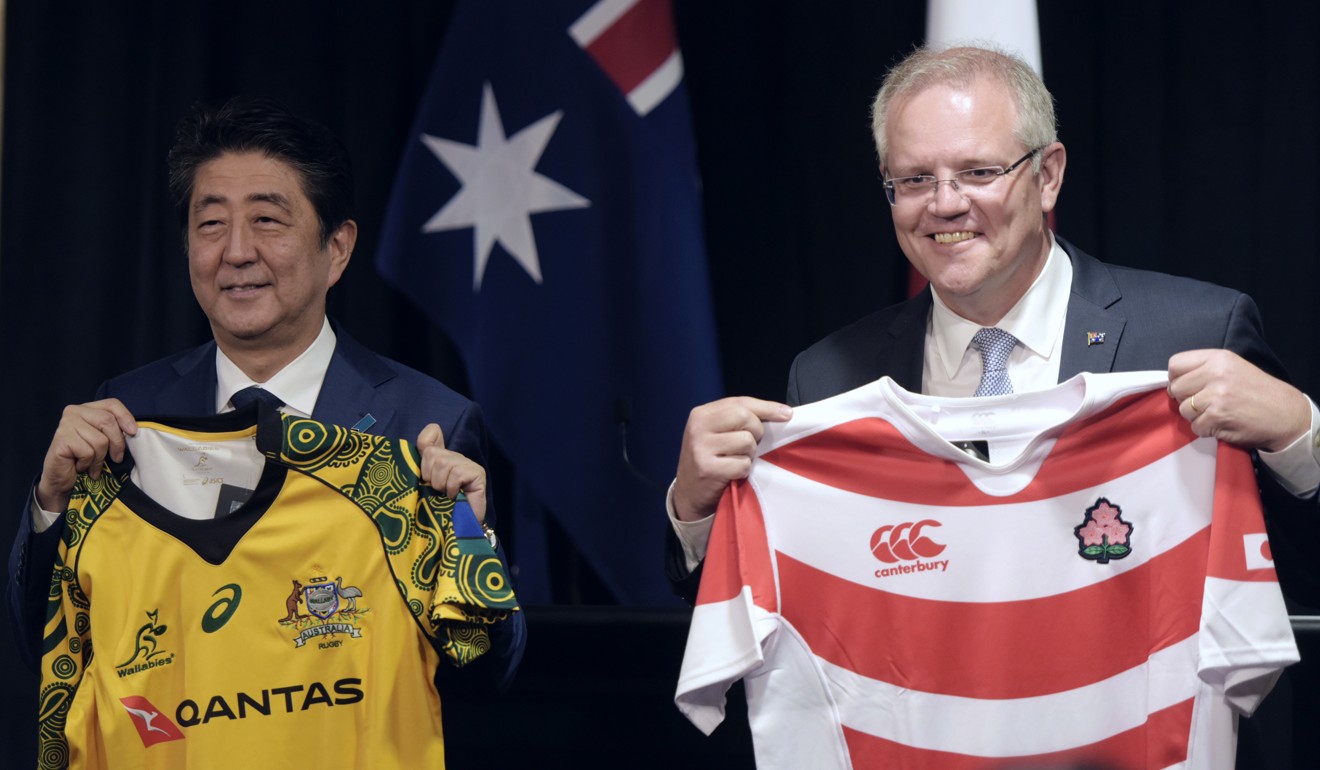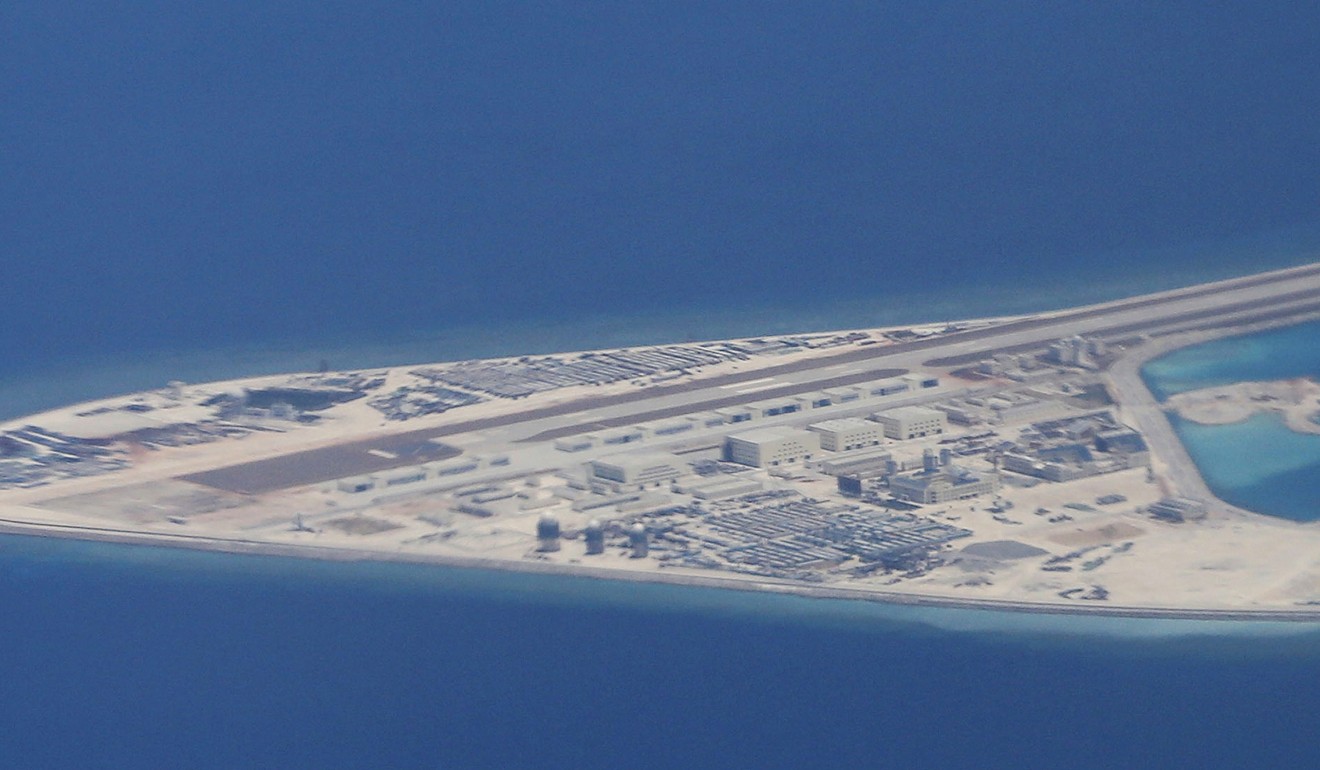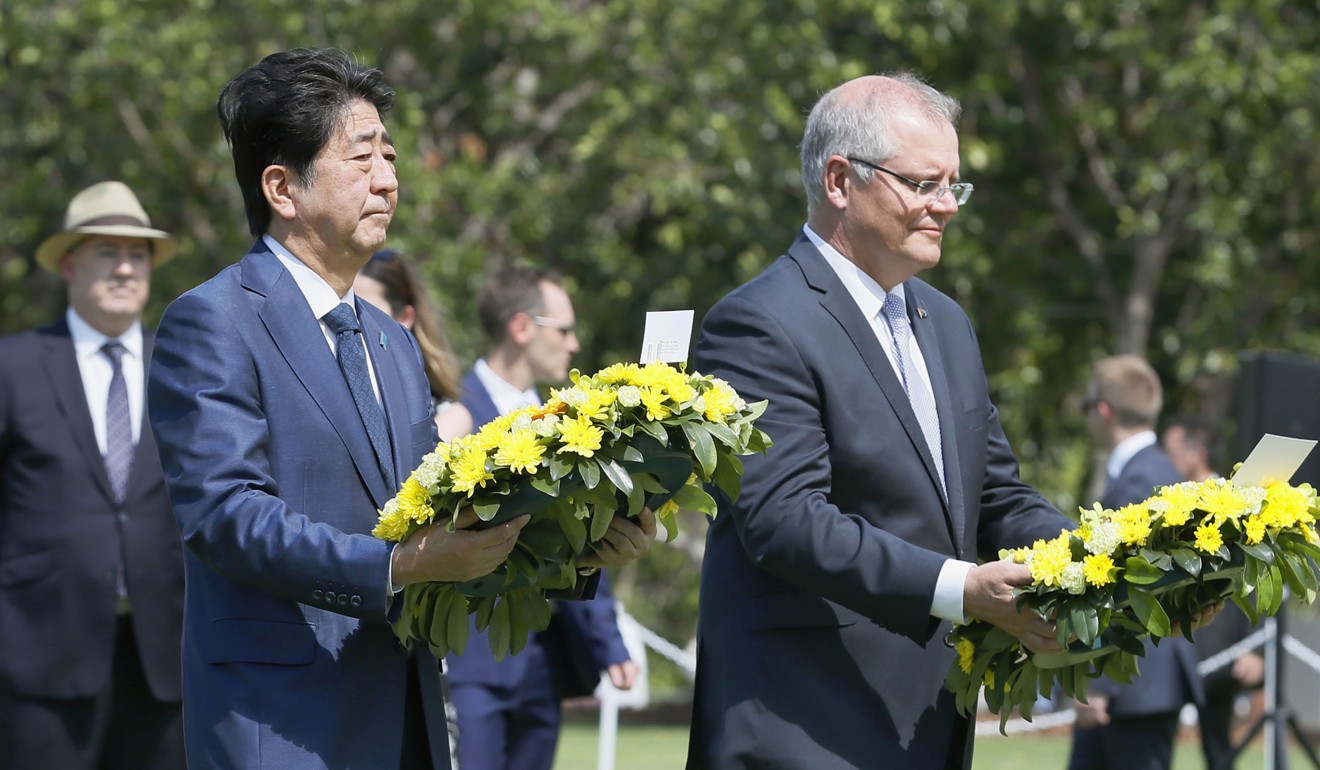
Australia and Japan vow enhanced security cooperation to counter China at ‘deeply symbolic’ meeting
- Shinzo Abe became the first Japanese prime minister to lay a wreath at an Australian memorial, in a show of remorse for his country’s role in the second world war

“Australia and Japan also stand united on the importance of resolving disputes in the South China Sea, peacefully and in accordance with international law, and we are strongly opposed to any actions that could increase tensions within the region,” Morrison said, reading from a statement after meeting Abe.
He added that a “stable and secure regional maritime … order is central to both Australia and Japan’s visions for the region, and is underpinned by respect for international law.”
Morrison said he looked forward to increased cooperation with Japan to support regional maritime safety and security. The leaders said they hope to conclude an agreement early next year on increased defence links, including more joint military exercises.

Abe said Japan and Australia would promote cooperation to strengthen the rule of law at sea. The two leaders also agreed to promote cooperation in providing help for maritime security-related projects in Southeast Asian and Pacific island nations.
“Darwin, connecting the Indian and Pacific oceans, is a crucial place for the stability and prosperity of the whole of the Indo-Pacific,” Abe said. “It is at this very place where Prime Minister Morrison and I confirmed our commitment to further deepen this special strategic partnership between Japan and Australia, in pursuit of our common vision of a free and open Indo-Pacific.”

Abe arrived for his visit on Friday afternoon and immediately went to lay a wreath with Morrison at the city’s main war memorial. Abe then stood solemnly with head bowed as an army bugler played “The Last Post”.
The visit continues Abe’s moves to show remorse for Japan’s role in the war, following his trip to Pearl Harbour in 2016.
“Darwin was once the place where the former Japanese forces conducted their first air bombing against Australia, leading to much sacrifice,” Abe said. “At the war memorial, I extended my condolences in honour of all the foreign soldiers, and renewed my vow towards peace.”
On Saturday, Abe will honour his country’s war dead, visiting the memorial of the 80-crew Japanese submarine I-124, which was sunk off Darwin in January 1942.
Pearl Harbour visit shows Japan’s Abe has eyes trained on China and pacifist rethink

